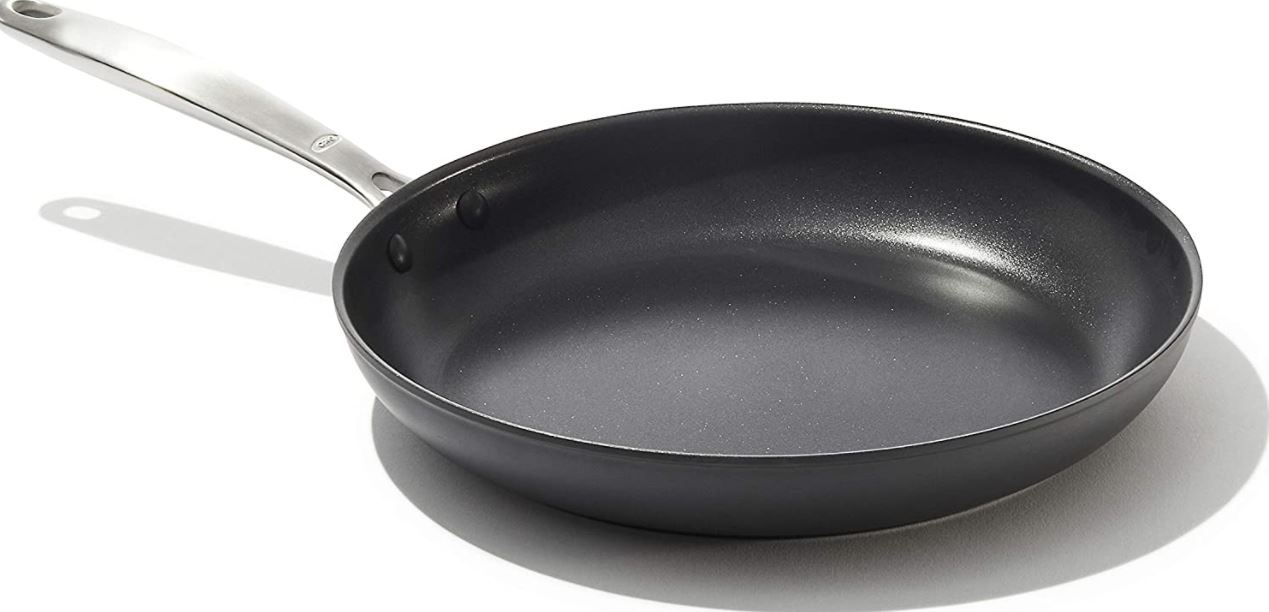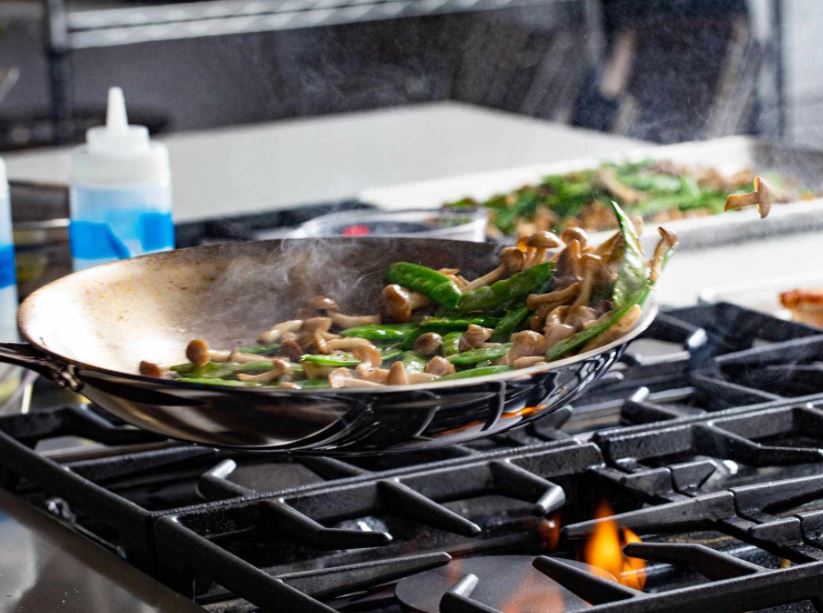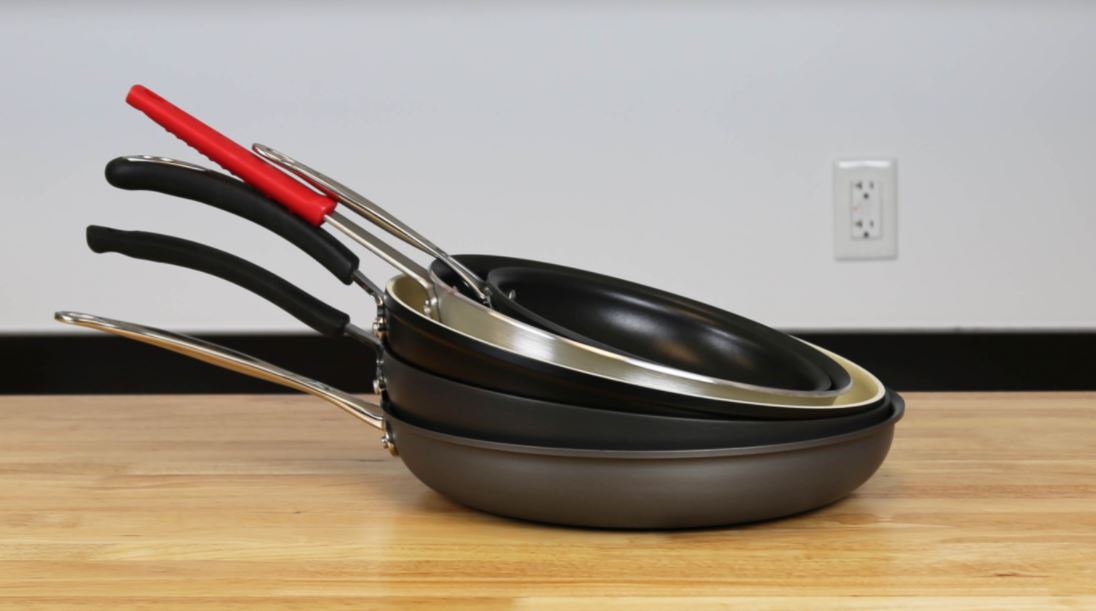A nonstick skillet or pan is essential in preparing various types of meals. If you are into cooking, then this is one thing that you should not miss in your home. There are several things you should pay close attention to when buying a nonstick skillet. They include:
Abrasion Resistance
 Nonstick pans need a lot of love to keep their original look and nonstick properties. If your family isn’t always tender when it’s time to wash the dishes, you’ll need a pan that is particularly resistant to abrasion. To keep your pans for a long time, put aside a rough pad and intense washing, and forget the piles of pots in the cupboard!
Nonstick pans need a lot of love to keep their original look and nonstick properties. If your family isn’t always tender when it’s time to wash the dishes, you’ll need a pan that is particularly resistant to abrasion. To keep your pans for a long time, put aside a rough pad and intense washing, and forget the piles of pots in the cupboard!
Good Heat Distribution
You are a fan of pancakes, and you like them when they are nicely browned all over their surface. You will need a pan that distributes the temperature evenly and grills the food evenly. Look for models with proper heat distribution for the best cooking experience.
Utilization Facility
When shopping, take the time to weigh the different models, as their weight can vary from single to double. Also, check if the grip of the product you are interested in is comfortable. Some cookware have a small handle that gets hot during cooking. Before buying, make sure that the utensil remains stable on a flat surface; it is a sign of quality and uniform cooking.
The Size
Stoves come in several sizes. However, pay attention to the height of the wall: for the same diameter, some products are deeper, and their capacity can vary from single to double. For example, certain pans can hold around 2.2 liters of liquid, while others can take twice as much.
You should also make sure the nonstick skillet you choose is compatible with an induction cooker.
It is difficult to say which type of coating is the most nonstick since few manufacturers indicate on their products exactly what material they are made of. Note, however, that the market is roughly divided into two: on one side, Teflon-based coatings, on the other, ceramic ones.
Is Teflon Dangerous?
About 20 years ago, perfluorooctanoic acid (PFOA), a chemical agent used in the manufacture of Teflon, began to cause some concern. Various toxicological studies attributed it to all kinds of adverse effects: congenital disabilities, disruption of the endocrine system, dysfunction of the immune system, the thyroid gland, and the liver, reduced fertility, increased cholesterol levels, etc.
 The United States Environmental Protection Agency (EPA) considers PFOA a probable carcinogen in rats, but that does not necessarily mean that it is in humans. This compound would not remain in stoves or other products after manufacture.
The United States Environmental Protection Agency (EPA) considers PFOA a probable carcinogen in rats, but that does not necessarily mean that it is in humans. This compound would not remain in stoves or other products after manufacture.
It is still better to be careful when using a Teflon pan. If you overheat it (e.g., empty on the stove), it could emit irritating or toxic fumes. These emissions cause symptoms similar to those of the common cold or the flu in humans but can be fatal to your domestic birds. Just sauté vegetables, cook eggs quickly or simmer dishes over low heat. Pans with ceramic-based coating are ideal for frying.




